
Latest
News
Landfall Angus | Farming for five generations
Tamar Valley, Northern Tasmania
Situated along the Tamar River in Northern Tasmania, Landfall Angus has been integral to Australian agriculture since the Archer family settled there in 1876. Starting with 1,000 acres for cropping, wool production, and cattle, the family established the Landfall Angus Stud in 1948. Beginning with twelve foundation females and procuring sires from Victoria, the herd gained recognition for its fertility and growth performance.
Fourth-generation family member Gerald Archer made significant strides in genetic improvement. He travelled extensively to source top-tier genetics and introduced performance recording systems, becoming an early adopter of Breedplan. This innovation allowed Landfall Angus to benchmark its genetics against industry standards, cementing its reputation.
Today, the fourth and fifth Archer generations manage over 2,650 registered Angus females. They focus on producing fertile, structurally sound, low-maintenance cattle that excel in growth and carcass performance.
With a commitment to sustainability and innovation, Landfall Angus continues to lead Australian beef production, blending a proud heritage with forward-thinking practices to uphold its legacy of excellence.
Landfall Angus follows a practical philosophy, with cattle managed under commercial conditions to ensure their genetics are suited to the beef industry, meeting the needs of modern farmers. This approach, passed down through the generations, focuses on breeding high-performance cattle that deliver real-world results. With over 500 bulls marketed annually across Australia, Landfall Angus’ breeding program maximises genetic gain, adding value to the beef supply chain. The herd now exceeds 5,000 registered animals, thanks in part to innovations like irrigation and intensive rotational grazing.
“To run our operation means we are predominantly a grazing business, with ryegrass pastures, about 700ml rainfall annually, and an intensive rotational system on dry and irrigated land,” says Frank Archer, son of Gerald, and current director of Landfall Angus. Alongside his father, brother Ed and a committed and competent team of people, they manage the cattle and grazing operation. “Currently the total effective area is about 3,000 hectares over the two Landfall properties in the Tamar Valley and another in the north west of Tasmania. We do grow other crops, but the majority of the annual cropping program is fodder, being winter feed for cattle.”
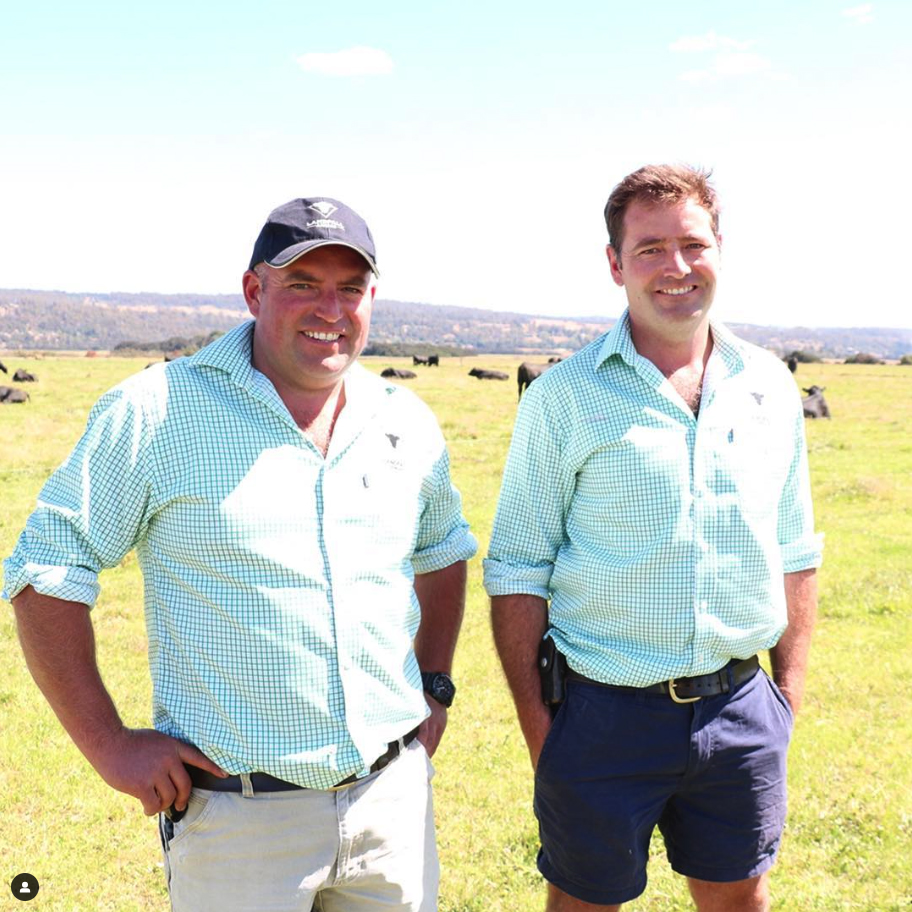
Since 2013, brothers Ed and Frank Archer have been managing the Landfall Angus team.
(Photo courtesy of Landfall Angus)
The breeding herd consists of a majority of young animals with high genetic merit, requiring a large quantity of high quality feed to produce the desired results.
“Our approach to our fertiliser program is the same as anything should be in life, which is endeavouring to achieve a healthy balance, for sustainability,” Frank explains.
Soil nutrition is vital for consistent delivery in a high stocking rate/high input production system such as Landfall. The team works with a range of inputs, including conventional and synthetic fertilisers, and for over a decade have been incorporating BioAgPhos® into their program.
“It wasn’t that we were looking for the organic product, but a sustainable system was desirable, and BioAgPhos was well suited to this. Using a mix of soluble and sustained release inputs means we get the best of both worlds. All the parts need to work together, and soil nutrition influences these decisions.”
“A common trait among the best farm managers is not to be an expert in anything, they’re good at surrounding themselves with experts and being well educated to make informed decisions. We have the right people who understand soil to give us the information we need to make the best decisions at the time.”
– Frank Archer, Landfall Angus
Annual soil testing has been standard practice for many years at Landfall. Used to provide the ‘scorecard’ on how the team are managing the soil, testing gives them a very useful snapshot for measuring the nutrient status as well as other aspects such as pH levels and organic matter. The results influence the upcoming fertiliser application plan, and Frank believes this to be the best measure of product performance.
BioAgPhos is the primary source of phosphorus used at Landfall, thanks to sound advice from a trusted Victorian associate.
“We make our own custom blend on farm based on soil testing, and incorporate the BioAg product, or use as is, applying via a broad cast application. In the early days, the transition from previous practices to BioAgPhos meant avoiding any lag in the short term, as this is a slower release product option, but that wasn’t a challenge, and it was a good decision.”
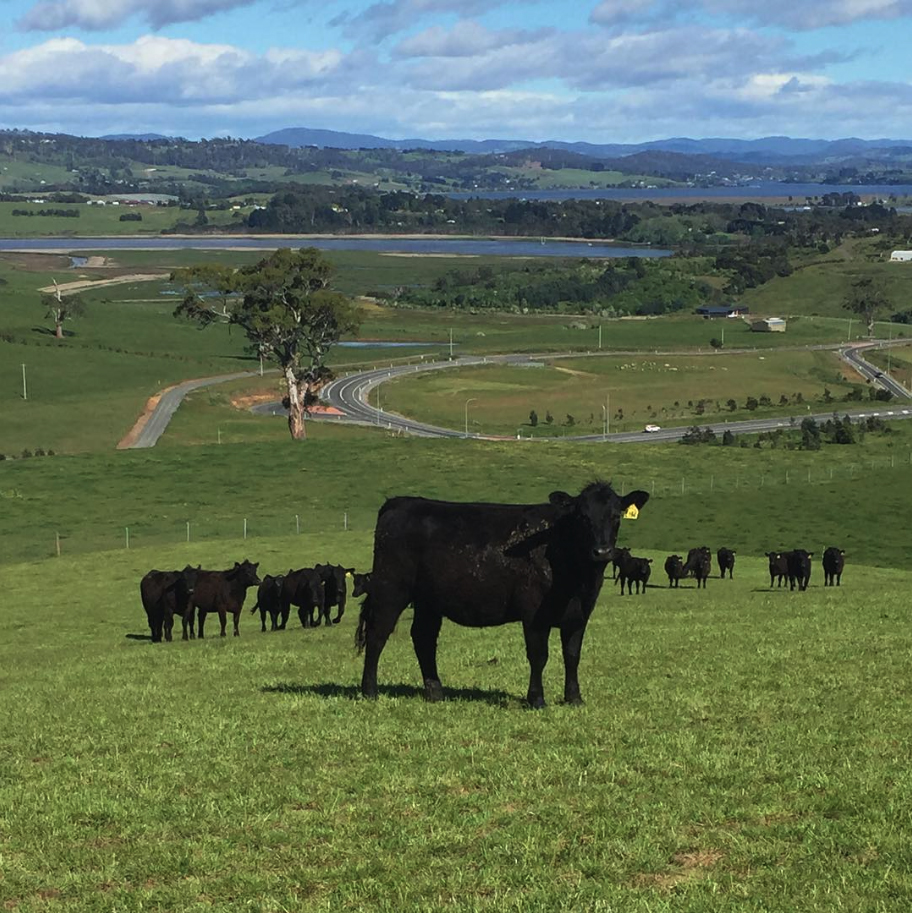
Landfall Angus yearling heifers enjoying the northern Tasmanian spring sunshine.
(Photo courtesy of Landfall Angus)
“While we do have to freight it in from Victoria, BioAgPhos is the right product for our business,” Frank said. “It’s easy to source, always consistent, and pricing is competitive. Certainly one of the big benefits is we haven’t seen the acidifying of the soil that can happen with more conventional fertilisers. We are putting on a high rate of phosphorus to match our high stocking rate. Correcting the acidifying effect with lime is something we no longer have to deal with.”
“My intention is to leave this land in a better condition than when I took on the responsibility of looking after it. This is not an easy task, as it has always been well looked after. That standard has been set high, and we continue to set high standards for how we look after the land and the environment around us, not just our own micro-environment. There is pressure on those in agriculture to consider the way we operate, and whether that is right or wrong, I do believe there is a lot that can be improved to ensure we can continue to feed the population with less and less land available to do so.”
When considering the next generation to inherit the responsibility of caring for land and legacy, Frank states, “Cost efficiencies are important, but managing the land and the health of the soil, prioritising a sustainable and healthy balance, and having the right people around that you can trust and products you can rely on – those are the things that matter the most.”
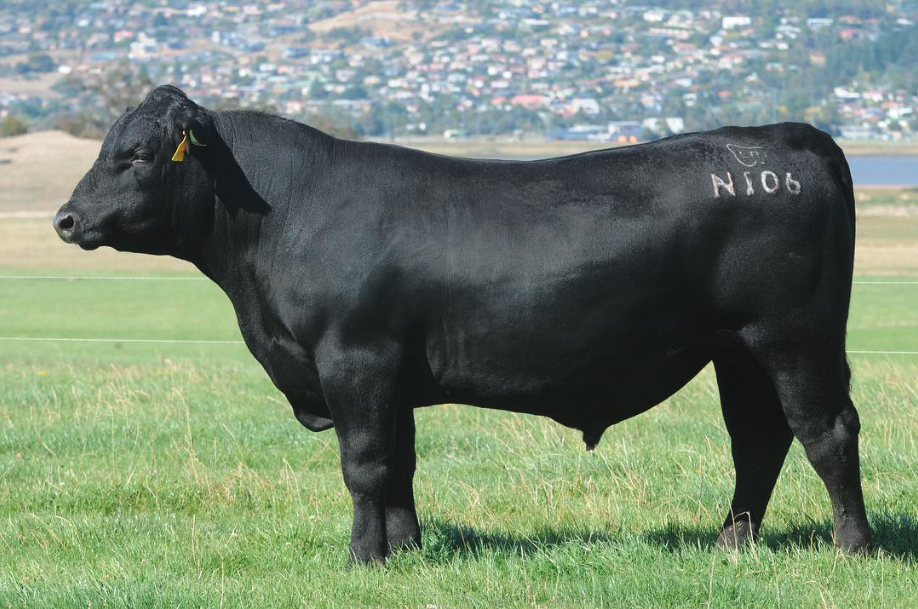
Landfall Angus have been presenting annual on-farm Bull Sales during Autumn for 46 years, adding an annual Spring sale to the mix in 2003. These popular sales events are also accessible online via AuctionsPlus.
(Photo courtesy of Landfall Angus)
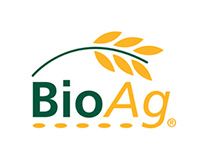
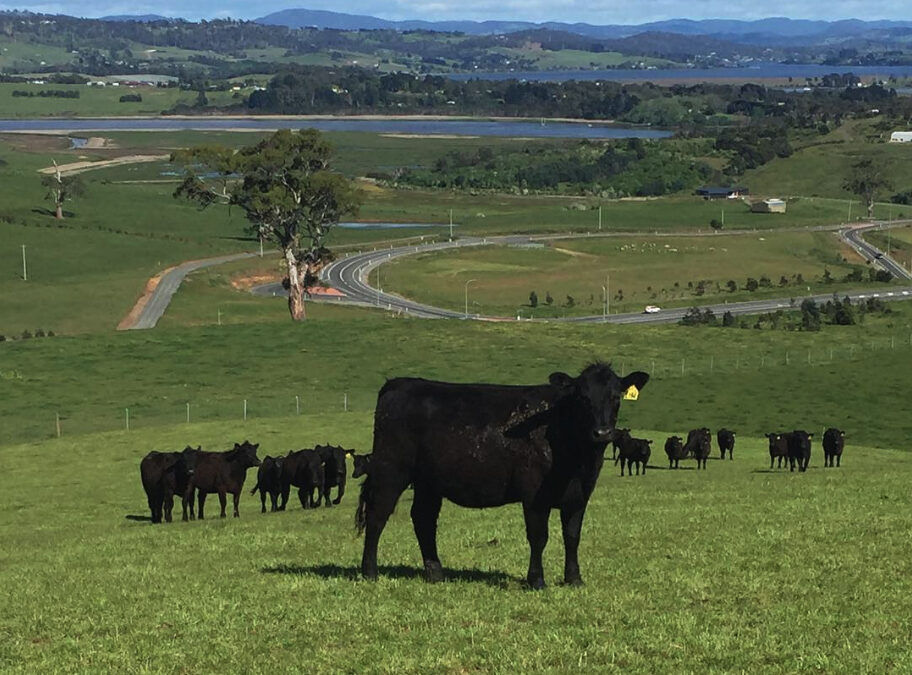
Recent Comments